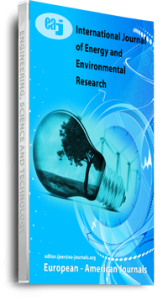This study presents the potentials of solar energy utilisation and other possible pathways that could enhance energy sustainability in a developing economy. Nigeria is a developing country, blessed with abundant natural resources (renewable and non- renewable). However the current energy mix in Nigeria is such that little attention is given to the renewable sources in terms of exploitation and use. Despite the on-going privatisation of the Power Holding Company of Nigeria (PHCN), the current energy demand in Nigeria still far outweighs the supply which is also quite epileptic. The adoption of renewable energy options especially solar-thermal, solar photovoltaics, and biomass technology on a large scale will surely lead to reduced internal consumption of fossil fuel related products, and to boost increased energy availability and sustainability. This study critically examines the factors hindering solar and biomass energy utilisation in a developing economy. It then identifies the impact of unsustainable energy use in the economy and reviews related literature. It also highlights the need for Government to give urgent attention to tapping of the vast renewable resources in the country for increased energy generation and sustainability.
Keywords: Developing Economy, Energy Sustainability, Renewable Energy, Solar Energy, Utilisation.

